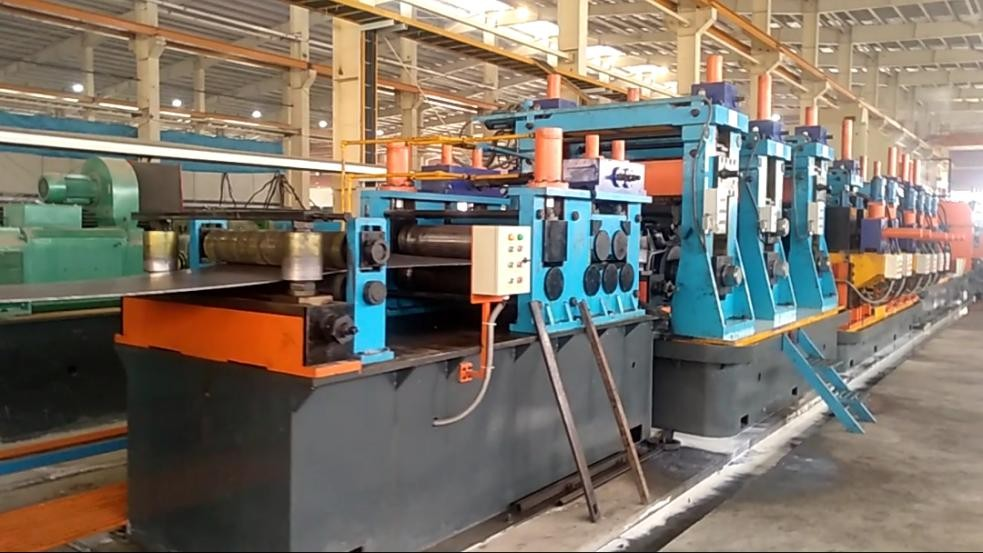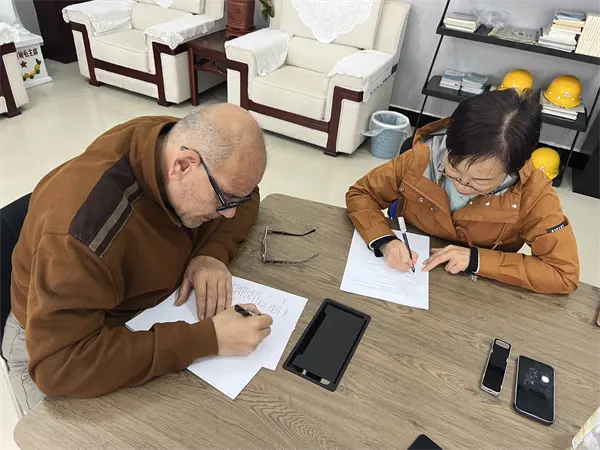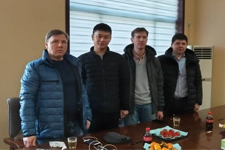×

Search
Electrical Resistance Welding (ERW) pipes are a crucial component in various industries, known for their quality, strength, and versatility. Manufactured using cutting-edge technology, these pipes meet stringent industry standards. In this article, we will delve into the comprehensive process of manufacturing ERW pipes, discussing the raw materials used, the detailed manufacturing process, and the specifications that define these pipes.

The primary raw material for manufacturing ERW pipes is steel. The type of steel used often depends on the intended application of the pipe. Here are some of the commonly used steel types in ERW pipe manufacturing:
· Carbon Steel: A prevalent choice due to its high strength and durability. It is commonly used in construction, transportation, and various manufacturing applications.
· Stainless Steel: Known for its corrosion resistance, making it ideal for applications that involve exposure to harsh chemicals or environments.
· Alloy Steel: Offers a balance of strength, toughness, and wear resistance, suitable for specific industrial applications.
The quality of these raw materials significantly impacts the quality of the final product. Therefore, reputable manufacturers like TianxiangHao ensure that the steel used meets the required industry standards and is sourced from reliable suppliers.
The manufacturing of ERW (Electrical Resistance Welding) pipes involves several meticulous stages. The process can be outlined as follows:
The process begins with large steel coils that are cut into narrower strips of precise width. This process is known as slitting. The edges of these strips need to be smooth and even, ensuring that the subsequent forming process goes smoothly.
The slit steel strips are then fed into an ERW pipe mill, where they are gradually shaped into a cylindrical form through a series of rollers. This step is critical as it sets the foundation for the pipe’s shape and dimensions.
Once formed into a cylinder, the edges of the steel strip are heated using electrical resistance, causing them to melt and fuse together. This welding process doesn't require any additional welding material, resulting in a strong seam that is integral to the pipe's structure.
After welding, the cylindrical pipes are passed through more rollers to fine-tune their shape and size, ensuring they meet the required specifications. This stage ensures the uniformity of the pipe’s dimensions and its overall quality.
The continuous lengths of pipe are then cut to the desired lengths using a cutting tool. The accuracy in this stage is crucial for the subsequent application of the pipes.
Quality control is vital at every stage of the manufacturing process. The finished pipes undergo rigorous inspection and testing, which may include:
· Hydrostatic Testing: Ensures the pipe can withstand internal pressure.
· Non-Destructive Testing (NDT): Methods like ultrasonic testing check for internal flaws without damaging the pipe.
· Dimensional Inspection: Ensures the pipes meet precise dimensional specifications.
As a final step, the pipes may undergo certain finishing processes such as galvanization, threading, or coating, dependent on their end-use. This step enhances the pipe’s durability and prepares it for various applications.
Specifications for ERW pipes are defined by several factors including size, material grade, and mechanical properties. Below are some key specifications to consider:
· Size: ERW pipes come in various diameters and wall thicknesses to suit different applications. Common sizes range from small diameter pipes used in plumbing to large diameter ones used in industrial pipelines.
· Material Grade: The type of steel used can range from standard grades to more specialized alloy compositions, depending on mechanical requirements and corrosion resistance.
· Standards: ERW pipes conform to several international standards such as ASTM, API, ISO, and ASME. Each standard outlines specific requirements for material properties, dimensions, and testing.
· Mechanical Properties: Key properties like tensile strength, yield strength, and elongation are specified to ensure the pipe can perform effectively under the required conditions.
· Coatings: Depending on the application, ERW pipes can be coated with materials like zinc (galvanization) for corrosion resistance, or may be lined with specialty coatings for additional protection.
The manufacturing of ERW pipes is a sophisticated process that requires meticulous attention to detail at each stage. From selecting the best quality raw materials to ensuring that each pipe meets rigorous specifications, reputable manufacturers like TianxiangHao utilize advanced ERW pipe mill technology to deliver superior products. The use of high-quality steel, precise forming techniques, stringent quality control, and adherence to international standards ensure that ERW pipes remain a reliable choice for various industrial applications. By understanding the intricate process and strict specifications, you can appreciate the excellence embedded in each ERW pipe that TianxiangHao manufactures.
Large Diameter Spiral Welded Pipe Production Line
Small Diameter Spiral Welded Pipe Production Line
Heavy Duty Spiral Welded Pipe Production Line
Thin Wall Spiral Welded Pipe Production Line
Stainless Steel Spiral Welded Pipe Production Line
Hydrostatic Pressure Testing Machine for Large Diameter Pipe
Hydrostatic Pressure Testing Machine for Small Diameter Pipe
Hydrostatic Pressure Testing Machine for Ultra High Pressure Steel Pipe
Chamfering Machine for Large Diameter Steel Pipe End
Chamfering Machine for Small Diameter Steel Pipe End
Double Station Chamfering Machine for Steel Pipe
Automatic Steel Pipe Chamfering Machine
High Frenquency Welded Pipe Production Line for Large Diameter Pipe
High Frenquency Welded Pipe Production Line for Small Diameter Pipe
Steel Pipe Conveyor
Steel Pipe Rotating Roller Table
Steel Pipe Puller
Steel Pipe Dropper
Steel Pipe Storage Rack
3PE Anti-corrosion Steel Pipe Production Line
Plastic Coated Steel Pipe Anti-Corrosion Production Line
Polyethylene (PE) Insulated Steel Pipe Production Line

Quick Links
Address
Tel
+86-0317-6213222Quick Links
Address
South Industrial Development Zone, Yanshan County, Cangzhou City, Hebei Province
Phone
+86-0317-6213222
_20250326101307.webp)
